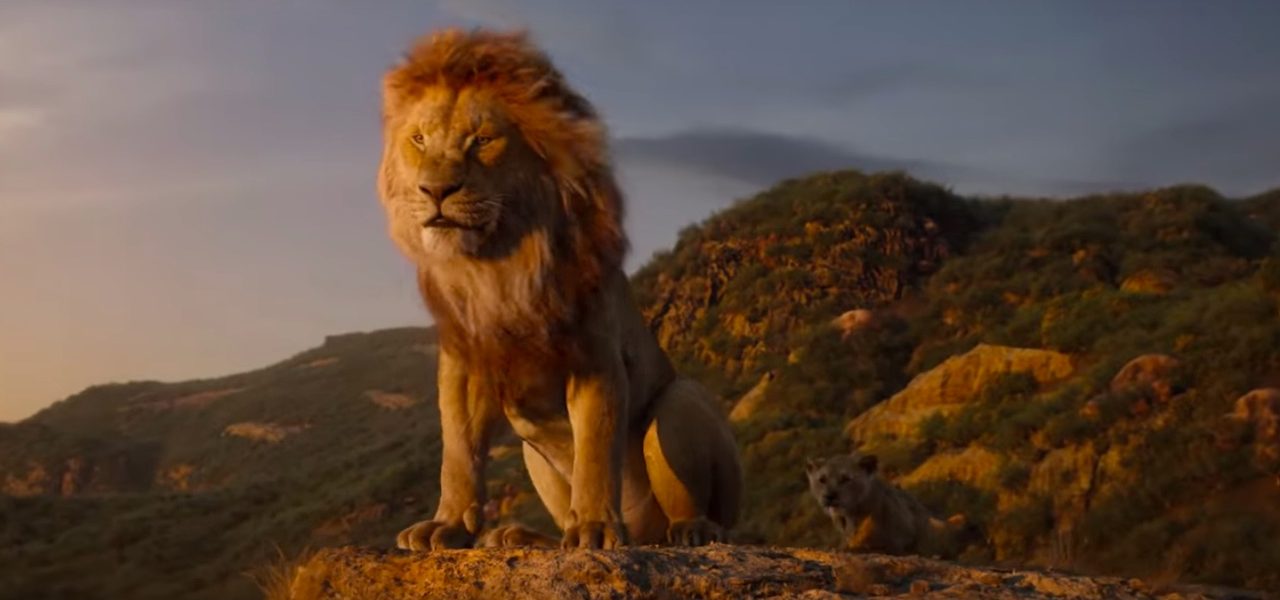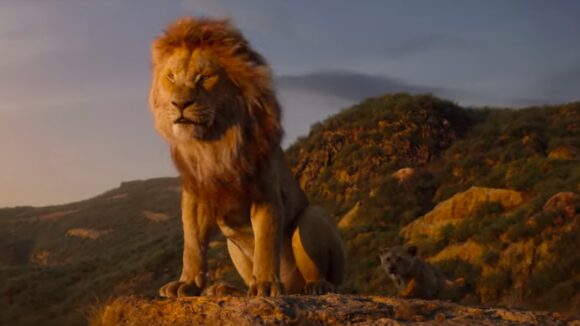

‘The Lion King’ Is Eyeing All-Time Opening Weekend Record For An Animated Film
After years of hype and corporate misinformation, the cg revival of The Lion King is opening this weekend. And if projections are anything to go by, Disney’s most high-profile remake to date will live up to expectations — at the box office, at least.
Box Office Pro predicts that The Lion King will net $201 million in its opening weekend in the U.S., for an eventual domestic total of $650 million. Deadline reports that another “leading tracking service” is forecasting a $180 million opening. If the film performs at the higher end of this range, it will notch the biggest stateside opening weekend ever for an animated feature. That accolade currently rests with Incredibles 2, which took $182.6 million in 2018. The record opening for any feature in July is $169.1 million (Harry Potter and the Deathly Hallows Part 2).
In China, the film opened last Friday, a week ahead of other major markets. Its three-day total came to around $54 million. This beats The Jungle Book’s $49-million opening weekend, and outstrips the cumes of Aladdin ($53.5 million) and Dumbo ($21.9 million). The original Lion King received a wide release in the country, back in 1995; although the box office was far smaller then, the story and characters have a more sentimental value in China than many Disney properties.
After China, The Lion King will open in another 45 countries between July 17 and 19. Three territories will have to wait a few more weeks: Hong Kong, Japan, and Italy.
Initial reactions to the film have been mixed. At the time of writing, it holds a 59% rating on Rotten Tomatoes, which is somewhere near the average for Disney’s recent remakes. It ranks higher than Dumbo (46%), but falls far short of The Jungle Book (95%), which was also directed by Jon Favreau. One caveat: The Lion King currently has less than half as many registered reviews as those films, and its rating will change as more critics see it.
One thing’s for sure: a middling critical reception won’t necessarily harm the film’s box office takings. Aladdin has grossed a whopping $926 million on a 57% Rotten Tomatoes rating. (It’s worth noting that its audience score on the same website is 94%.) Like that film, The Lion King is based on a widely loved feature from the 1990s, and is likely to draw families whose parents fondly remember the original.
Its appeal is boosted by its starry cast, which includes Donald Glover, Beyoncé Carter-Knowles, Chiwetel Ejiofor, Seth Rogen, and James Earl Jones, who reprises his role as Mufasa. Beyoncé performs a new song, “Spirit”, to go with the classics by Elton John and Tim Rice and Hans Zimmer’s score. The animation and vfx were supervised by Rob Legato and Adam Valdez, both of whom also worked with Favreau on The Jungle Book, and produced at MPC.
Hearteningly, prominent critics now generally accept that The Lion King is animated. Its “photorealist” cgi has often been mistaken for live action, or at least some kind of entirely new hybrid medium that can’t be described as animation. This is an impression that Disney, keen to differentiate the remake from the original, has encouraged, even though the film was keyframed.
The Washington Post’s Michael O’Sullivan gave The Lion King 3.5/4 stars, arguing that the visual approach makes the story more engrossing:
There’s something about this Lion King, which, like the original, has its narrative roots in Hamlet, that feels so much more Shakespearean and — there’s no other word for it — so much more tragic than the 1994 feature-length animation, in which the story’s darker themes were subliminal, not center stage. Here, the death of a beloved character, one whose fur looks so real you could pet it, is that much harder to take.
Peter Bradshaw handed out 3/5 stars in The Guardian. He recognized the film’s technical achievement, but wasn’t taken in by it:
Basically, this new Lion King sticks very closely to the original version, and in that sense it’s of course watchable and enjoyable. But I missed the simplicity and vividness of the original hand-drawn images. The circle of commercial life has given birth to this all-but-indistinguishable digiclone descendant. I don’t quite feel like bowing, but respect has to be paid to a handsomely made piece of entertainment.
In his scathing Indiewire review, David Ehrlich lamented that the naturalistic animation limits the characters’ expressiveness, and that the cg world often slips into the uncanny valley:
Most often, the animation is just bland in a way that saps the characters of their personalities. Scar used to be a Shakespearian villain brimming with catty rage and closeted frustration; now, he’s just a lion who sounds like Chiwetel Ejiofor. Simba used to be a sleek upstart whose regal heritage was tempered by youthful insecurity; now he’s just a lion who sounds like Donald Glover. Watching them come to blows against a realistic-but-dull background suggests that Favreau was so busy trying to figure out if he could, that he never stopped to consider if he should.
Buzzfeed reporter Adam B. Vary captured the ambivalence found across many reviews in a tweet:
#TheLionKing is a landmark *visual* experience. I’ve never seen anything like it, and I think it’s going to change how we look at movies forever.
As an *emotional* experience, though…I’ll put it this way: It turns out lions can’t really emote.
— Adam B. Vary (@adambvary) 10 July 2019
